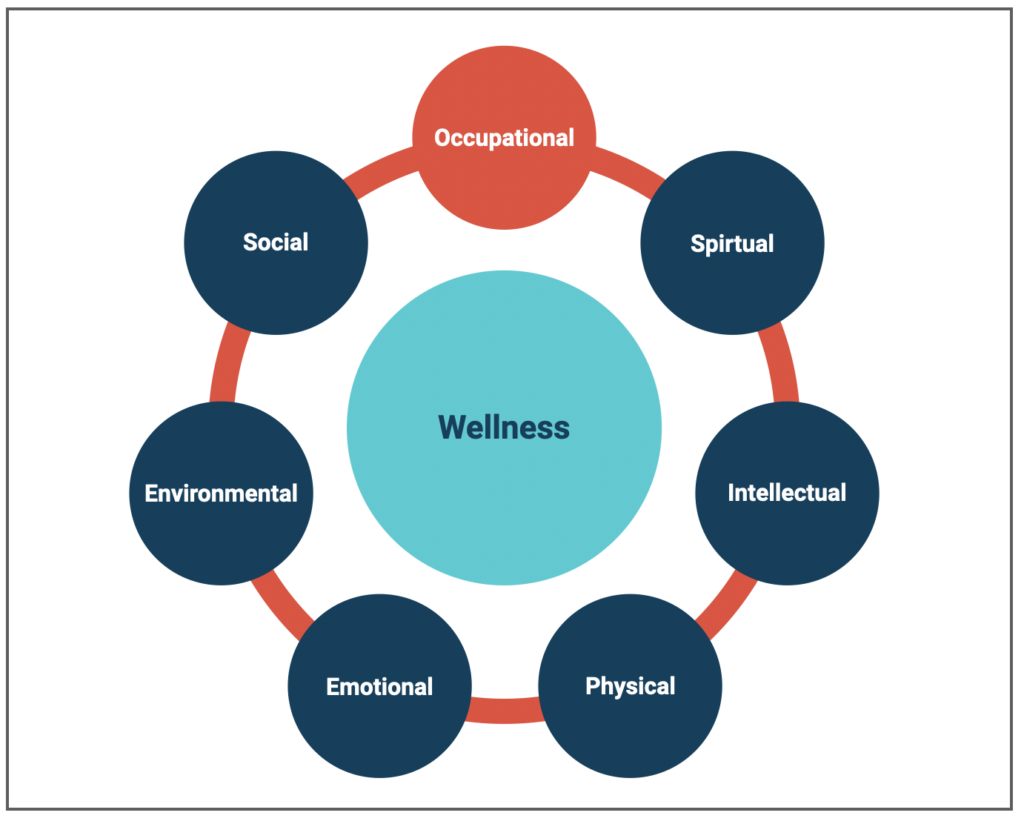By Ian McAteer, Chairman, The Union
I apologise in advance. This is not a cheery, upbeat, end-of-year style thought piece. I want to tackle head-on an issue which I know troubles many business leaders, not just in our industry, but across all business sectors. I think it is an important leadership focus for 2023.
Three years of trauma
The last three years have been the most challenging in my time leading The Union for over almost 30 years. Since March 2020 we’ve been hit with the pandemic, a war in Europe, Brexit, and now an energy and cost of living crisis; not to mention a recession. Three tough, crazy years.
As a business we’ve been lucky. We’ve navigated all the crap with remarkable resilience and dexterity, and succeeded in being crowned Scotland’s Agency of the Year in 2021 and winning ten Marketing Star Awards in 2022. But I do wonder how much more our business, and our clients’ businesses, can take. Have we reached the point where Scotty is yelling to Kirk, “She can’nae take any more, captain!”?
A new challenge
Looking forward I see a new challenge emerging. A challenge which I believe goes to the very essence of what businesses are all about. Attitudes and behaviours amongst the workforce are in a state of flux. Our people, the smart and clever individuals who make businesses tick, are morphing before our eyes.
What I’m saying is not new. Commentators, recruitment agents and government data show that people are less loyal to their employers. They are seeking greater flexibility. The pandemic has let the ‘working from home’ genie well and truly out the bottle. Employers are struggling to adapt, struggling to get staff back into the office, and wrestling with increasing staff turnover.
Thanks to Brexit, there are more jobs than there are candidates. It’s a jobseeker’s paradise; at least for the time being – the coming recession may change this. Gen Z, or the ‘zoomers’, are entering the workplace with very different ambitions and demands. All of this creates huge headaches for business leaders. How can they bond their organisations into lean, mean, fighting machines, when at times it feels like there is no machine?
Yuval Noah Harari’s central thesis in Sapiens is that homo sapiens rule the world because we are the only animal that believes in things that exist purely in our own imagination, such as gods, states, money, and human rights. And of course, companies and businesses.
Thus, for much of the 20th century this is what has driven the global economy. People working collaboratively and productively for corporations. (Corporations that are in truth not real; but simply legal fictions.) This has permitted organisations to thrive, on the back of the loyalty and commitment of their people. Collaborative effort has been the key to growth.
Corporate culture as a tool
Businesses have not taken this loyalty for granted. The emergence of ‘corporate culture’ became the tool by which organisations created, nurtured, and fed a sense of belonging and cemented staff loyalty.
(In my May 2020 ‘lockdown blog’, ‘Confessions of a cult member’, I wrote about the extraordinarily powerful culture I experienced in my formative years at Saatchi & Saatchi in the 1980s.)
Much has been written about company culture, and there are numerous consultants, academics and experts on the subject. I wish I could say I was one, but like many leaders I confess to finding it one of the most challenging aspects of leading a business.
But what I can say, and this is the nub of my piece, is that I now do question whether the new zeitgeist of our age is the rise of the individual, at the expense of the collective.
The rise of the individual
Never before have individuals (in the developed world) had so much freedom, opportunity and flexibility. (Countries offering visas for ‘digital nomads’ is just one consequence of this trend.) I would go so far as to call it a ‘new selfishness’. We are all so focused on our individual needs, we’ve forgotten about the needs of others.
 The rise of the individual. Is this the zeitgeist of our age?
The rise of the individual. Is this the zeitgeist of our age?
The best example I can think of is working from home. The person who makes the choice to work from home, maybe because it is convenient, their home is nice and comfortable, and they have a family around them, or they don’t want to commute, would appear to have little thought for the individual who lives alone, in a small flat, and who needs to go to the office for their own mental health. Nor do they appear to give little thought for the eager bright-eyed new graduate, who arrives on their first day of work, only to discover that 90% of the staff are working from home.
The rise of the individual is based on a fundamental shift in how many think about their work. The old binary equation of the ‘work-life’ balance is no more. My generation, and the ones just below mine, may have followed this approach. But Gen Z and millennials have an altogether different view. Work is just one factor they integrate into a holistic view of their lives. This is the ‘wellness’ trend, where individuals seek to find a balance between their work, health, spiritual, social, physical and emotional needs. Not to mention their concerns for the planet and for social justice. (When you think about it, an altogether healthier outlook.)
 The new holistic model. Work is just one facet of life in a wellbeing-focused world.
The new holistic model. Work is just one facet of life in a wellbeing-focused world.
Thus, offices lie empty. We are trapped in a world of Zoom calls, we lack social context and emotional warmth, and we loosen the threads and ties that bind us. Business leaders spend more time on HR, recruitment, resolving internal conflicts and dealing with communication breakdowns than ever before. And less time focusing on clients, customers and growth.
Hence company culture is dead. The company is no more. We’re just a collection of individuals, going through the motions, staying with our current employer for the time being, as long as it suits us. We create no bonds with our co-workers, because we hardly see our co-workers. We are all fellow travellers in the digital ether.
 Are we all destined to become travellers in a digital space?
Are we all destined to become travellers in a digital space?
A contrarian
Now, of course I don’t really believe this. I’m being deliberately contrarian.
But I do have serious concerns that this is where we’re headed if we’re not careful. I know what I say will resonate with many, especially those with responsibility for leading businesses and those who work in HR.
So, what’s the solution? There is only one solution. Leaders need to double-down and focus on culture. It’s the lifeblood of the organisation. At The Union we have a clearly articulated purpose (we are ‘agents of change’) and we have a firm set of values by which we live. We focus on maintaining, developing and enriching our culture; we do this every day.
It’s hard work. It requires effort, imagination, and empathy. Above all it requires an absolute, total commitment to stick to the values you wish your people to live by. Values which are designed to create the best possible working environment, which make it a place people want to be, a place where people feel safe, trusted, motivated and fulfilled.
This can’t happen without strong and principled leadership. Leaders who walk the walk; strong leaders who call out things when they’re wrong; leaders who listen and respond; leaders who are brave enough to bare their souls and be transparent; leaders who show they care.
Focus on the simple things
My tips for resetting the culture or your business? These are perhaps obvious; but you’d be amazed how few businesses focus on the simple things.
- Be crystal clear on your purpose and ensure it is not just communicated but believed.
- Plant your values firmly in the centre of the business like a standard; and then live them to the full.
- Empower your managers to experiment and evolve your culture; in all its expressions.
- Remember culture is not just about office parties or benefit perks. Embed your culture into everything you do; from your processes to communication and appraisals.
- Be innovative; find interesting ways to bring your culture to life. Surprise your team, so your business is a fun and imaginative environment.
- All said and done; ask yourself a simple question. Is this a great place to work? If you don’t think it is, then for sure others won’t.
I wish I could say that we have wholly succeeded in re-invigorating the concept of a strong company culture post-pandemic. Our culture didn’t die; but like many businesses it has required lots of TLC. We do know from our staff surveys that we have a strong and resilient team, and a high degree of motivation. We know from our client surveys that we have an incredible level of customer satisfaction; but also, where we need to improve. So, the good news is we’ve got lots to build on.
 A recent Union party. Our culture is key to our success.
A recent Union party. Our culture is key to our success.
Looking back and looking ahead
As we finish 2022, I’d like to take this opportunity to thank all our clients, suppliers and especially, all my colleagues for their support in challenging times. Looking forward, I’m committing to focus even more on ensuring our business is a stand-out example of a great company culture.
And I’d urge other business leaders to make it a resolution to focus on culture as one of the key drivers for success in 2023.
Merry Christmas and a Happy New Year to all.